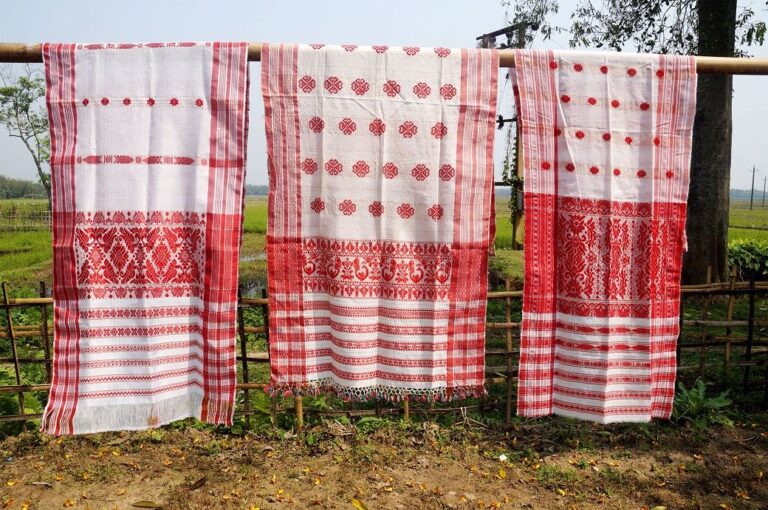
[ad_1]
“You are all aware that the Registrar of Geographical Indication, Chennai has granted the GI application to the Gamosa of Assam in favour of Directorate of Handloom & Textiles of Assam on December 13, 2022. Now, production of Gamosa of Assam is prohibited from production outside of the state of Assam,” the state’s government said in a notification.
Assam government has announced its intention to protect its traditional wear, which recently received a Geographical Indication (GI) patent under the Handloom (Reservation of Articles for Production) Act, 1985. The government has reserved the production of Gamosa, Mekhela-Chadar, Dokhana, and others for handloom, thus worrying Surat’s manufacturing sector.
“According to the Handloom (Reservation of Articles for Production) Act, 1985, the manufacturing of Gamosa, Mekhela-Chadar, Dokhana, etc are reserved for exclusive production by handloom. It is observed that some unscrupulous traders are importing and selling cheaper power loom Gamosa and other traditional items reserved under this Act. For better enforcement of the provision of the GI and Handloom (Reservation of Articles for Production) Act,1985, a special drive should be started from February 1, 2023, to prevent the production, import and sale of power loom made Gamosa, Mekhela-Chadar, Dokhana, etc. Enforcement squad should be constituted for this purpose with the help of district/sub- divisional administration,” the notification added.
The move by the Assam government is causing great concern for Surat’s garment manufacturing hub. Industry sources revealed that nearly 60 per cent of these garments are supplied by the Surat textile industry, making it a significant contributor to the North-Eastern state. As per industry estimates, the manufacturers currently have around ₹100 crore worth of traditional garments in stock, along with the goods in transit and with retailers in the North-East and other parts of the country. The Surat-based industry has requested the Assam government to provide a window to clear their existing stock.
Traders and manufacturers from Surat argue that handloom Mekhela Chadar sells for around ₹7,000-8,000, whereas Surat’s machine-made Mekhela Chadar is available for ₹500-700. They contend that machine-made products are cheaper and of comparable quality. Additionally, the supply of handloom Mekhela Chadar is limited, and the demand is high, making it difficult to meet production needs without machine-made options.
Ashish Gujarati, president of the Southern Gujarat Chamber of Commerce and Industry (SGCCI) told Fibre2Fashion, “There is no ban on power loom production of such products. However, the authorities from Assam government can probe and act against import, production, stock, and sale of these products made in the power loom. The move from the Assam government will definitely impact the Surat market. However, it is limited in size and unlikely to disrupt the entire garment market.”
Fibre2Fashion News Desk (KUL)
[ad_2]
Source link